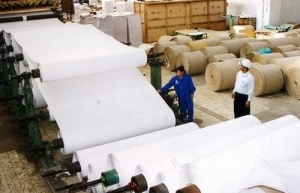Vietnam to introduce new environmental fee for emissions
 |
In a significant move towards curbing environmental degradation, Vietnam's Ministry of Finance (MoF) has opened the floor for feedback on a draft decree detailing new environmental protection fees for emissions.
Initially, the fee will be applied to entities discharging pollutants, notably businesses involved in steel production, metallurgy, inorganic chemical manufacturing, inorganic fertiliser production, chemical-based plant protection products, oil refining, waste recycling, hazardous waste treatment, thermal power, and cement production.
Facilities emitting pollutants will be mandated to pay a fixed fee of VND3 million ($126.58) annually. Additionally, a variable rate ranging from VND500 (2 US cents) to VND800 (3 US cents) per tonne will be applied to four major pollutants – total dust, nitrogen oxides, sulphur oxides, and carbon monoxide.
Sites that face continuous automatic emissions monitoring are required to submit quarterly environmental fee declarations by the 10th day of the first month of the subsequent quarter. Any delay in fee submission will result in the levy of a late fee, as stipulated in the tax administration law. Payments can be made via bank transfers to dedicated fee-collection accounts, or directly in cash.
Incentivising cleaner technologies
By implementing these fees, the MoF hopes to encourage entities to invest in technologies that reduce emissions and minimise environmental damage. This initiative aligns with the Party and the government's agenda of prioritising air quality protection.
The proposal mirrors the environmental protection fee framework for industrial wastewater that is set out in Decree No.53/2020/ND-CP. This cohesion aims to enhance the efficiency of public service execution, economise human resources, and simplify the fee submission process for stakeholders.
Emission quantities will be ascertained based on monitoring data, ensuring fairness among businesses. Such measures will amplify the role of the public in overseeing the fee submission process of polluters, enabling timely reporting of violations to competent state agencies.
Background and context
The draft decree's explanatory note emphasises that, as Vietnam progresses economically and socially, the air quality in major cities and several industrial zones (IZs) is deteriorating. Such degradation poses severe threats to public health, the economy, and the environment.
Air pollution, particularly in large urban areas, has reached alarming levels at times. With approximately 5.1 million cars and a plethora of motorcycles in circulation, coupled with significant IZs emitting vast quantities of pollutants daily, the situation is dire.
Vietnam currently hosts nearly 120,000 industrial manufacturing units. Of these, 138 are categorised as causing severe environmental pollution, according to Decision No.1788/QD-TTg. Moreover, around 110,000 construction businesses contribute heavily to emissions, adversely impacting the environment.
So far, efforts to comprehensively address these pollution sources remain incomplete. Regrettably, most firms discharging pollutants lack full awareness of their responsibilities in protecting air quality.
Therefore, the MoF believes that the introduction of this environmental protection fee for emissions is essential. It aims to institutionalise the Party and government's objectives, enhance the legal fee system, address current demands, and gradually heighten environmental protection awareness among emitting entities.
 | Vietnam's tough journey to reduce urban emissions In addition to adequate energy supply, the demand for smart energy in urban areas is viewed as a qualitative change in energy mobility in Vietnam. VIR’s Angela Nguyen talked with Mikael Jakobsson, executive director of the Asia Pacific Urban Energy Association on the issue. |
 | Pulp and paper manufacturers tangle with approach to emissions inventories Many pulp and paper manufacturers are continuing to seek effective tools for greenhouse gas inventories and going green. |
What the stars mean:
★ Poor ★ ★ Promising ★★★ Good ★★★★ Very good ★★★★★ Exceptional
 Tag:
Tag:
Related Contents
Latest News
More News
- Trung Nam-Sideros River consortium wins bid for LNG venture (January 30, 2026 | 11:16)
- Vietnam moves towards market-based fuel management with E10 rollout (January 30, 2026 | 11:10)
- Envision Energy, REE Group partner on 128MW wind projects (January 30, 2026 | 10:58)
- Vingroup consults on carbon credits for electric vehicle charging network (January 28, 2026 | 11:04)
- Bac Ai Pumped Storage Hydropower Plant to enter peak construction phase (January 27, 2026 | 08:00)
- ASEAN could scale up sustainable aviation fuel by 2050 (January 24, 2026 | 10:19)
- 64,000 hectares of sea allocated for offshore wind surveys (January 22, 2026 | 20:23)
- EVN secures financing for Quang Trach II LNG power plant (January 17, 2026 | 15:55)
- PC1 teams up with DENZAI on regional wind projects (January 16, 2026 | 21:18)
- Innovation and ESG practices drive green transition in the digital era (January 16, 2026 | 16:51)






















 Mobile Version
Mobile Version